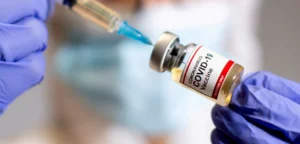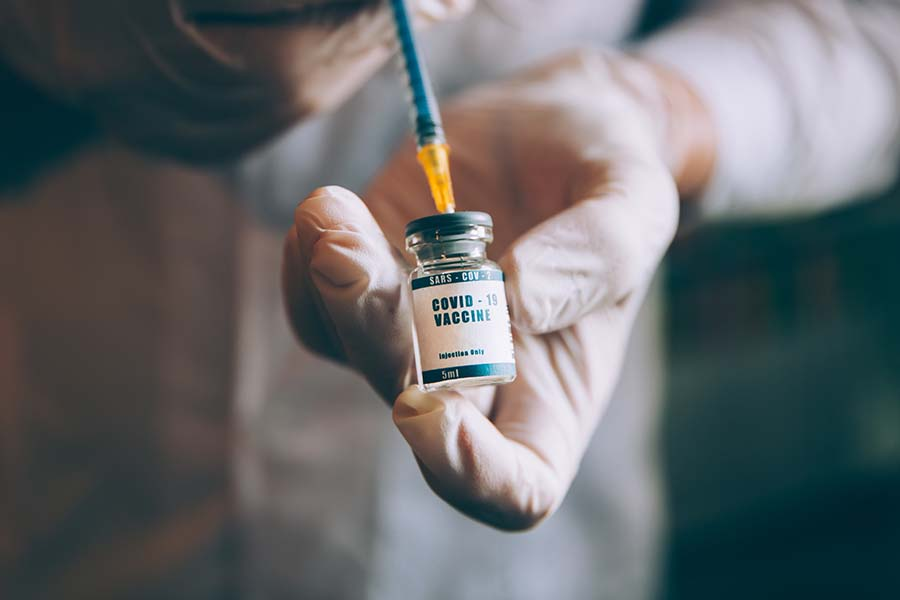INTRODUCTION
When the Government of India (GoI) first launched its Covid-19 vaccination program on 16 January 2021, only the GoI could procure and distribute vaccines. The Ministry of Health and Family Welfare (“MoHFW”) had already issued its ‘Covid-19 Operational Guidelines’ on 28 December 2020, outlining the GoI’s vaccination strategy and related guidelines. The guidelines did contemplate ongoing engagement with the private sector, and vaccination through private health facilities.
As part of this planned engagement, the MoHFW then issued a guidance note dated 6 April 2021, (“MoHFW Note”) on ‘Covid-19 Vaccination At Work Places’, outlining the conditions under which private sector employers could organize vaccination camps at the workplace for their employees (but not their family members). Such camps were to be organized in collaboration with private healthcare facilities registered as Private Covid Vaccination Centers (PCVCs). PCVCs could purchase vaccines from the Government and ‘partner with’ private sector employers to administer vaccines at employee vaccination camps. Such PCVCs could charge no more than Rs. 250 per person per dose for such vaccinations.
Matters became rather more complicated with the GoI’s ‘Liberalized Pricing and Accelerated National Covid – 19 Vaccine Strategy’, which came into effect on 1 May 2021 (‘New Policy’):
- The New Policy expanded the vaccination program to cover those aged 18-44, and allowed State Governments and private hospitals to buy vaccines approved for use in India directly from domestic vaccine manufacturers, at prices set (and declared in advance) by such manufacturers.
- Private hospitals could no longer buy vaccines from the Government. At the same time, the cap on what they could charge for vaccinations was removed.
- The GoI would continue to vaccinate healthcare workers, frontline workers and citizens aged 45 and over.
- The State Governments could theoretically begin to vaccinate citizens under 45, but being short on vaccines, were encouraged by the GoI to prioritize citizens aged 45 and over.
The New Policy essentially created a second, more expensive, ‘free market’ vaccination program, running parallel to the GoI and State Government programs.
The MoHFW then clarified on 19 May 2021 that workplace vaccinations camps could cover all employees aged over 18 years, but not their family members (echoing the position in the MoHFW Note).
Meanwhile, the Central Drug Standard Control Organization (CDSCO) issued a public notice on 4 May 2021 (titled ‘Guidance for import of vaccine by private sector or any person’), which appeared to allow imports of vaccines by the private sector, prompting corporates to wonder if they could directly import vaccines into India, and if so, which ones.
The FAQs below attempt to organize and make sense of the regulatory landscape that applies to private sector employers who organize vaccination camps for the benefit of their employees.
Which vaccines are authorized for use in India?
Three – Covishield, Covaxin and Sputnik V.
On 3 January 2021, the CDSCO approved two vaccines for restricted emergency use:
- Covishield, developed by Oxford-AstraZeneca and manufactured in India under license by the Pune-based Serum Institute of India (SII), and
- Covaxin, developed by Bharat Biotech in association with ICMR and National Institute of Virology.
Then, on 12th April 2021, the CDSCO approved Sputnik V, developed by Moscow’s Gamaleya Institute. Sputnik V is currently being imported into India by Dr. Reddy’s Laboratories, and also being contract manufactured under license by Panacea Biotec.
No other vaccines have been approved yet, although Zydus-Cadila will likely seek emergency use approval for its three-dose vaccine, currently in Phase-III trials, in June 2021. Hyderabad-based Biological E has received approval to begin Phase-III trials of its own two-dose vaccine, and expects to produce 75-80 million doses a month from August 2021 (subject to approval). It also has a license to contract manufacture 600 million doses of Johnson & Johnson’s single-dose vaccine, which has not been approved for use in India yet.[1]
Can private sector employers directly purchase Covid – 19 vaccines manufactured in India?
No. Under the New Policy, apart from GoI and State Governments, only hospitals, and ‘industrial establishments through their hospitals’ are eligible to procure vaccines in the private channel. Therefore, corporates generally procure vaccines from, and conduct vaccination camps through a PCVC. A list of registered PCVCs is available on the CoWIN app.
Can private sector employers procure vaccines from the Government?
No. While, before the New Policy, a company could also purchase vaccines from and vaccinate employees in partnership with a Government healthcare facility, now it can only buy vaccines from the ‘private channel’.
Are vaccine prices capped?
Yes and no.
On June 8, 2021, the Union Government issued Guidelines capping the prices of the vaccines. Private hospitals may charge a maximum of Rs. Rs. 780 for Covishield, Rs. 1410 for Covaxin and Rs. 1145 for Sputnik V. Additionally, the Guidelines now say, among other things, that domestic vaccine manufacturers must supply 75% of their capacity to the Union Government but can continue to reserve 25% of their production for sale (at prices set by them) to private hospitals.
In practice, employers will likely find that only a handful of hospital chains have vaccine stocks and are willing to conduct corporate vaccination camps. Further, the prices charged by these hospitals vary significantly around the country and an employer may have to pay them up to double the rates set by the manufacturers.
Can employers import Covid – 19 vaccines?
No. While the CDSCO guidance of 4 May 2021 may suggest as much, the process laid down by the CDSCO itself for import of vaccines (see ‘CDSCO public notice on Guidance for approval of Covid-19 Vaccines’, dated 15 April 2021) requires that one first procure an import license and registration from the CDSCO. An application for such a license may only be made by the foreign vaccine manufacturer’s Indian subsidiary or authorized agent.
To import a vaccine already approved in India, such as Sputnik V, an import license is sufficient. To import a vaccine not yet been approved in India (e.g. the Pfizer or Moderna vaccines), the applicant must also secure a new drug permission by the CDSCO. The CDSCO has stated that it will ‘fast track’ (i.e make a decision within three days) applications for approval of vaccines that have already received emergency approval for restricted use by the relevant drug regulatory authorities of the US, European Union, UK or Japan, or listed for Emergency Use by the World Health Organisation.
Once a ‘foreign produced’ vaccine has been approved for restricted emergency use in India as above, an importer/ authorized agent with the necessary import license can import the vaccine, but must thereafter (i) conduct a ‘post approval parallel bridging clinical trial’ and (ii) administer the imported vaccine to 100 recipients, monitor them for 7 days for safety outcomes and then submit the safety data to CDSCO for approval to sell the vaccine more widely.
Since the New Policy requires that corporates buy vaccines through hospitals, this in effect means only private hospitals may procure vaccines from such an importer. The New Policy also says that imported vaccines may be ‘utilized entirely’ by State Governments and the private sector, the implication being that there is no requirement to reserve half the capacity for the GoI, as with domestically manufactured vaccines.
What rules and regulations apply to employers that wish to organize vaccination camps?
Under the MoHFW Guidance Note, any corporate looking to implement a vaccination drive must comply with specific guidelines, including the following:
- Employers must approach the District Task Force (DTF) chaired by District Magistrate or Urban Task Force (UTF) chaired by Municipal Commissioner to be identified as an eligible workplace.
- An eligible workplace is one that employs more than 100 people and has three separate rooms for waiting, vaccinating and observation. These three rooms should be stable structures, ideally part of the permanent structure of the Work Place. Temporary tent like structures may not be used.
- Once identified, the relevant office or workplace is registered as a ‘Work Place Covid Vaccination Center’ (WCVC) on the CoWin portal.
- A WCVC must be tagged to the nearest private health facility registered as a PCVC.
Partnering with a Private Covid Vaccination Centre:
As proper administration of the Covid 19 vaccines requires trained personnel – and also because only hospitals (besides the Central and State Governments) are currently able to procure vaccines – the employer must partner with the nearest PCVC (in practice, probably the hospital through which he procured the vaccines). The tagged PCVC will provide the vaccine and deploy a trained vaccination team to the WCVC.
Appointing a Nodal Officer and mandatory registration on the CoWIN portal:
Additionally, a ‘Nodal Officer’ must be identified and designated by the employer, who must oversee and facilitate the vaccination process including:
- Identify all beneficiaries and ensure their registration on the CoWIN portal.
- Coordinate with the tagged PCVC to arrange space and infrastructure.
- Ensure that a printed copy of the vaccination certificate is provided to the beneficiaries on-site.
Infrastructure and Personnel:
If the employer has captive health infrastructure e.g. health clinics or nursing centers, it may set up a vaccination site therein, provided sufficient space for waiting, vaccination and observation rooms are available, and use its health care workers (such as doctors, nurses and other staff) for the vaccination drive as vaccination team members. These health care workers must be trained by the PCVC tagged to it before deployment.
For every 100 recipients of the vaccine, there must be a fully trained vaccination team consisting of:
- A team leader, who must be a doctor
- Vaccinator (authorized to administer injections)
- One vaccination officer to verify CoWIN entries
- Two more vaccination officers for crowd control and to track adverse events following immunization (AEFI).
AEFI Management:
All Work Place CVCs must:
- Have a medical officer as a team leader;
- Have an anaphylaxis kit for management of any adverse event;
- Be linked to the nearest (no more than an hour away) Health Facility (AEFI Management Centre), in case medical management is needed after vaccination.
- Have a basic life support (BLS) ambulance on standby to transport vaccine recipients to the linked AEFI management center if needed.
Are employers in Mumbai governed by different regulations?
The Mumbai Municipal Commissioner has separately framed and issued on 7 May 2021, its ‘Guidelines on Covid-19 Vaccination at Work Places/Housing Societies’. These guidelines also cover vaccination in housing societies but are generally very similar to the MoHFW Note.
Can employers also vaccinate their employees’ family members?
Neither the MoHFW Note nor the MoHFW letter dated 19 May 2021 allowed employees’ families to be vaccinated at workplace vaccination camps, while the Mumbai Guidelines did.
The MoHFW received several requests, including from the National Association of Software and Service Companies, to reconsider its position. On 21st May 2021, i.e. two days after ‘clarifying’ that private employers could not vaccinate their employees’ families, the MoHFW again ‘clarified’ that an employee’s family members and dependents (as identified by the employer) could be vaccinated at a workplace CVC, provided the employer procured the vaccines.
CONCLUSION
In a time of widespread vaccine shortages – where State Governments reportedly cannot procure vaccines from domestic manufacturers but private hospitals can – those fortunate enough to be employed in organizations that can hold vaccination camps realize that such camps represent the only source of access to vaccines, for themselves and their families. Likewise, employers realize (even if the GoI initially did not) that employees are not free to return to or focus on work while family members remain affected by or vulnerable to COVID-19. None of us are safe until all of us are. Corporate vaccination camps alone cannot solve this problem, but they are doing their bit for urban India.
A version of this article appeared in https://law.asia/vaccinating-staff-need-to-know/.
*n[1] Since the time of publishing, the CDSCO has approved the Johnson and Johnson vaccine, the Covovax vaccine and the Zydus Cadila vaccine.















